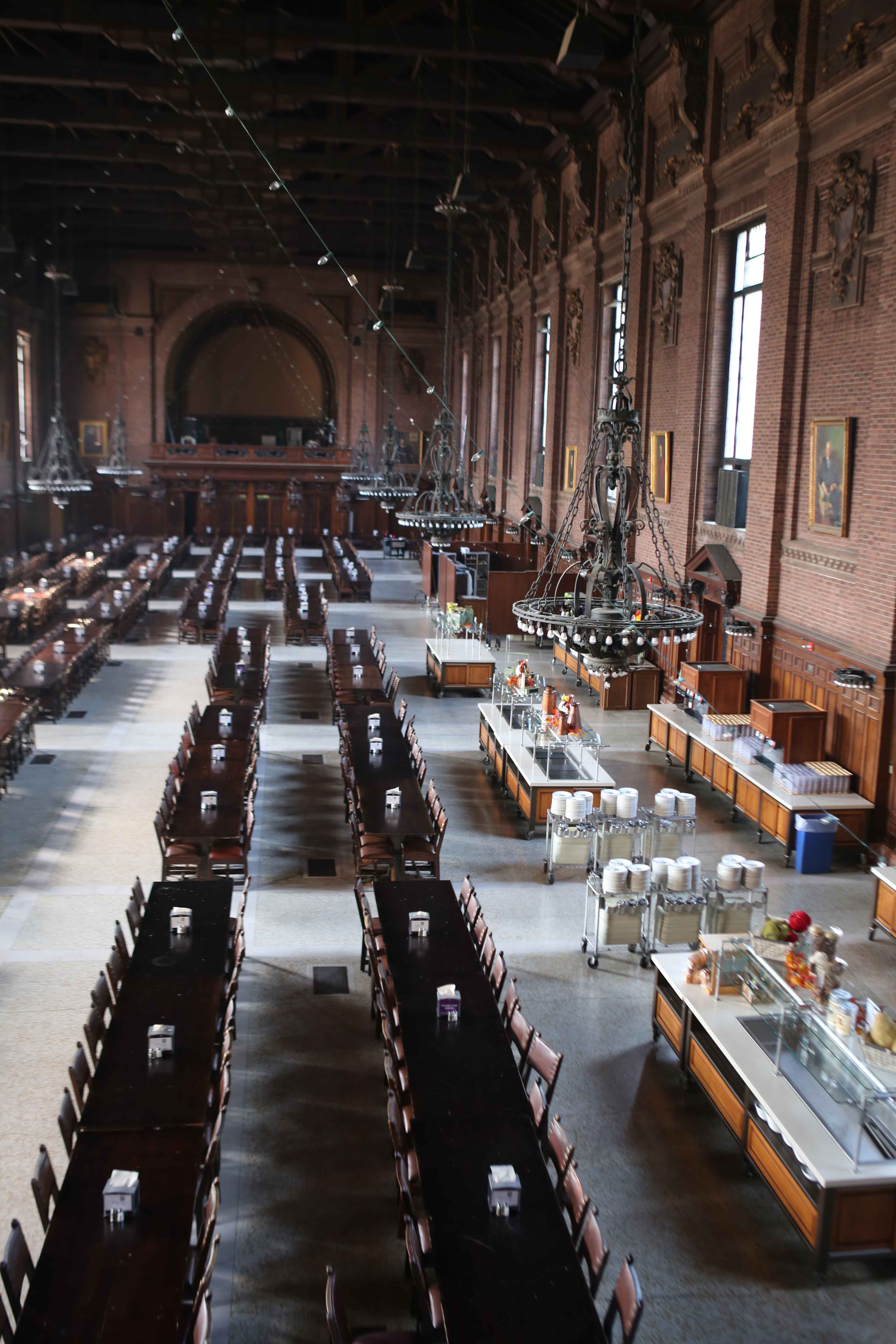
Food and drink were front and center in the Schwarzman Center Advisory Committee’s Feb. 11 report.
The report’s hypothetical day in the renovated Commons began with coffee, smoothies and bagels in a lower-level bistro and ended at 2 a.m. with wine and craft beers. Part and parcel of any new dining options at the center are low prices: food, drinks and whatever programming the new center provides should not be cost-prohibitive for low-income students, the report said.
“Prices in the dining venues need to be kept low,” the report said. “Low prices are particularly important to students on financial aid; we would not want the cost of dining to discourage some part of the student body from using the center.”
Yale students consulted by committee members during “listening tours” over the past few months have ranked better food and beverage options their top priority for the new center. But given students’ wide range of dietary needs and budgets, offering reasonably priced food options will hardly be straightforward. The $150 million gift from Stephen Schwarzman ’69 will fund renovations for the center and the arts programming it will house, but it is unclear whether the gift’s reach will extend to subsidizing food, undergraduate committee representative Skyler Ross ’16 said. Ross added that it is his understanding that the programming money from Schwarzman will fund special events, while dining options will be funded separately.
Members of the advisory committee have suggested several possibilities for keeping dining options in the new center affordable. Undergraduate committee representative Ree Ree Li ’16, who said food options are the biggest cost concern with the new center, said it would be best for all Schwarzman Center dining venues to accept meal swipes, like Thain Family Café in Bass Library. Ross said the committee discussed ways to cater to both undergraduates on meal plans and graduate students who are not on any sort of meal plan, including a potential a la carte option.
“There is also a possibility of Yale-subsidized food that students would buy, cheaply, out of pocket,” said Yale College Council President Joe English ’17, who also served on the committee as an “ex officio” member due to his role on the YCC.
Advisory committee member Lauren Tilton GRD ’16 said Yale Dining administrators are still working out the details of the center’s future dining options.
Further complicating the debate is the problem of agreeing upon a reasonable price for a la carte meals at the center’s dining venues. Graduate and Professional Student Senate President Elizabeth Mo GRD ’18, who, like English, served on the Advisory Committee “ex officio,” emphasized that prices need to be competitive to those at local eateries. New Haven food carts dish out $6 meals, and students can eat at West Campus for $5. Yale-New Haven Hospital meals range between $7 and $13. Mo said anything below $10 a meal would fit most students’ budgets.
Graduate Student Assembly committee representative Wendy Xiao GRD ’17 MED ’17 said that it is Yale’s mission to ensure any student can purchase a meal on campus for $8 or less, the price of a lunch swipe at Durfee’s Sweet Shoppe.
“A reasonable meal price is meant to be comparable with other options on campus,” said Cindy Rush GRD ’16, another GSA representative on the committee.
Still, it remains unclear how many of the report’s recommendations will make it into the final plans for the center. Committee members interviewed were quick to point out that the report is primarily a guideline for the new center, not a set of proposals to be implemented. Tilton said that the committee’s initial proposals were aimed to express ideas stemming from student feedback “regardless of the exact price.”
Rush said no idea is too ambitious because the center should aim to be unlike any other university student center, while Li called the report “realistic” and added that the proposals were dictated in part by what is feasible.
Mo said it would be okay if some proposals, such as the dance studio, never make it into the center, but emphasized that a bistro and wine bar are important.
“[Unlike undergraduates], graduate and professional students don’t really have on-campus activities, unless you include drinking at bars in the downtown area,” Mo said.
The committee’s report also placed emphasis on exercise classes in the center “that should be free or very low cost so as not to discourage students on financial aid.”







